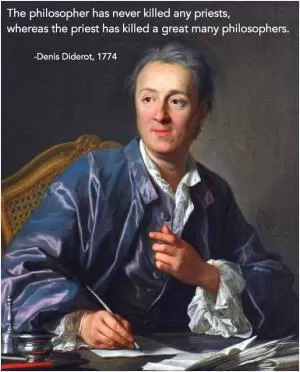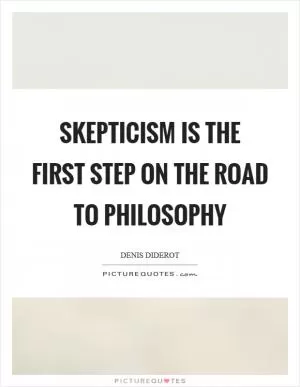It is not human nature we should accuse but the despicable conventions that pervert it

It is not human nature we should accuse but the despicable conventions that pervert it
Denis Diderot, a prominent figure of the Enlightenment era, was a firm believer in the power of reason and the potential for human progress. He was a vocal critic of the oppressive social conventions and institutions that he believed hindered the development of individuals and society as a whole. In his works, Diderot often explored the complexities of human nature and the ways in which societal norms and expectations can distort and corrupt it.One of Diderot's most famous quotes is, "It is not human nature we should accuse but the despicable conventions that pervert it." This statement encapsulates his belief that human beings are inherently good and capable of great things, but that it is the oppressive and restrictive conventions of society that often lead them astray. Diderot argued that it is these conventions, such as rigid social hierarchies, oppressive religious doctrines, and restrictive gender norms, that stifle individual freedom and creativity, and prevent people from reaching their full potential.
Diderot was particularly critical of the Catholic Church and its influence on society, which he believed perpetuated ignorance, superstition, and fear. He saw organized religion as a tool of control used by the powerful to maintain their authority and suppress dissent. Diderot believed that true morality and virtue could only be achieved through reason and rational thought, rather than blind adherence to religious dogma.
In his most famous work, "Encyclopédie," Diderot sought to challenge the prevailing beliefs and conventions of his time by promoting knowledge, reason, and critical thinking. He believed that education and enlightenment were the keys to breaking free from the oppressive forces that held society back. Diderot's writings were revolutionary in their time, and continue to inspire thinkers and activists to this day.












 Friendship Quotes
Friendship Quotes Love Quotes
Love Quotes Life Quotes
Life Quotes Funny Quotes
Funny Quotes Motivational Quotes
Motivational Quotes Inspirational Quotes
Inspirational Quotes